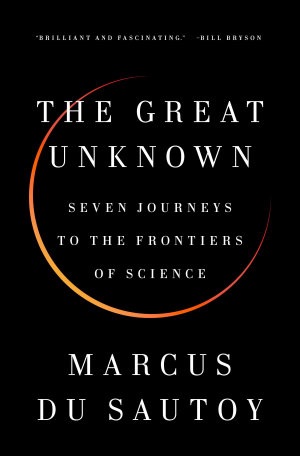Review: The Great Unknownby Jeff Foust
|
| The Great Unknown is a good overview of what we know, and what we don’t know, about many major scientific fields, with a particular emphasis on the physical sciences and mathematics. |
As the subtitle indicates, du Sautoy explores seven different areas, or “edges,” of knowledge in the book. In “Chaos,” he examines chaos theory and the limitations it places on predicting the future. “Matter” explores our knowledge of the structure of matter down to the subatomic level. “Quantum physics” is just that: a review of the counterintuitive aspects of quantum mechanics. In “The Universe,” he examines cosmology, in particular the Big Bang and the inflation model of the early universe. “Time” is primarily about relativistic effects. He turns inward in “Consciousness” to explore the human brain and what it means to be self-aware. Finally, “Infinity” is about, well, infinity, but also mathematical proofs and paradoxes.
Du Sautoy, who has been involved in a number of television series in Britain, writes in a style that communicates complex concepts in way that’s accessible to the educated layperson. He seasons the text with his own experiences as a mathematician, and talks with a number of experts in fields outside his own areas of expertise. There are a few equations scattered throughout the book, but it is not intended to be a comprehensive examination of any of the topics.
One interesting omission in the seven “edges” of knowledge in his book is that of biology. He touches upon this in the section consciousness, studying the brain, but the study of life itself—indeed, what exactly “life” is—is certainly a major frontier of research today. It has in recent years, through the interdisciplinary field of astrobiology, become a major driver for NASA research as scientists seek to find life elsewhere in our solar system or on exoplanets, a subject that requires an understanding of what it means for a world to be habitable.
That aside, The Great Unknown is a good overview of what we know, and what we don’t know, about many major scientific fields, with a particular emphasis on the physical sciences and mathematics. For as much progress we’ve made in the last few decades, or even the last century, there is much more to learn.
